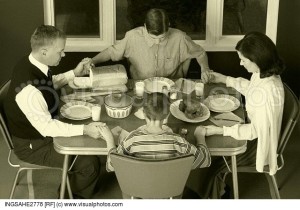Our nation is mourning, struggling to deal with horrific, unprovoked attacks on human life. We’re sickened by the evil and wonder where and when the next attack will be.
How can it happen in a safe place like WalMart? How can an activity be more innocent than buying school supplies? Too many questions go unanswered. Confusion and fear linger with the grief.
The violence must be stopped. Politicians and pundits offer answers that don’t satisfy. Reasons for the increase in mass shootings that are being pushed include mental illness, guns, racial strife, hatred, violent movies and video games, social media, loss of morals, immigration, the breakdown of families, and white males.
It’s complicated. The proposed topics could possibly be part of the problem, but I don’t believe that any are the cause.
We need to stop the carnage, but I don’t believe we looking deeply enough.
The first rule of battle is to know your enemy. What/who is the enemy leading the attacks?
Ephesians 6:12 lends a clue. “We do not wrestle against flesh and blood, but against principalities, against powers, against the rulers of the darkness of this age, against spiritual hosts of wickedness in the heavenly places.”
We won’t solve the problem by dealing with earthly problems when the battle is against the principalities and powers that rule the darkness of our age. The real battle is with hosts of wickedness. It is a spiritual battle.
What is the strategy of our enemy, the devil? What does he want to do?
According to Jesus, “The thief does not come except to steal, and to kill, and to destroy” (Jn. 10:10). He’s trying to destroy us, to kill us and is attacking on many fronts. Mass shootings are “the thief” in action.
God told Abram, “I am a shield to you” (Gen 15:1). Through covenant, that shield is still available to the children of God. Our nation was founded on Christian principles and many faithful followers remain. So, why does he have freedom to bring such destruction to our land?
It’s obvious that the effort to push God out of our culture opens the door for attack. But permission to kill innocent people has a more specific beginning.
I believe Satan was given authority to to kill in January 1973 when abortion was officially approved by the Supreme Court. On that day our nation gave its official sanction to murder the most helpless people among us.
The physical consequences of that decision are obvious. Millions of babies have lost their lives. But the effects are even bigger than the loss of individual lives. The value placed on life has also diminished.
Consequently, it is easier for someone to disrespect and put down those who disagree or get in their way. It’s also easier to deny them life itself. We see it happening to flesh and blood, but the battle is a spiritual one.
If we want to win the battle for life, we need to focus our energies against principalities, against powers, against the rulers of the darkness of this age, against spiritual hosts of wickedness in the heavenly places.”
That seems like a formidable foe. One that makes me acutely aware of my neediness. I don’t want to combat principalities and powers of darkness in the flesh. For this battle, I need someone much more powerful than I. I want to be hidden in Christ and to fight in and through Him.
Jesus called us to represent Him on the earth. Furthermore, He set the example by defeating the enemy, but He leaves it to us to take dominion here.
Jesus said, “And I will give you the keys of the kingdom of heaven, and whatever you bind on earth will be bound in heaven, and whatever you loose on earth will be loosed in heaven” (Matt. 16:19). We have the keys. In Jesus, we have authority to bind back the spirits of death and murder.
If we are intimidated and feel unqualified for that, we can pray like an archangel. Jude tells us, “Yet Michael the archangel, in contending with the devil, …, dared not bring against him a reviling accusation, but said, ‘The Lord rebuke you!’” (Jude 1:9). After all, He is the one with ultimate power and authority.
Furthermore, Jesus’ goal is in sharp contrast to the devil’s. He said, “I come that they may have life, and that they may have it more abundantly” (John 10:10).
I’m sick and tired of the senseless killings, and I know you are too. I want to support life, but have felt helpless to bring change, to bring life in the midst of the darkness.
Helplessness is cousin to hopelessness. If we’re feeling hopeless, it’s because the thief has stolen our hope.
We can’t just throw up our hands while the battle is raging—not if we want to win. We must put on our armor (Eph 6:11-18) and take our positions in the fight for light and life. We can begin by binding the spirits of conflict, darkness, death, destruction, and . . ., and loosing the spirits of life, love, joy, peace. . .. We can also ask the Lord to rebuke the enemy.
The kingdom of God is righteousness, peace, and joy (Rom. 14:17), as opposed to hatred, carnage and death. Let’s work together to see, “[His] kingdom come, [and His] will be done on earth as it is in heaven” (Mt. 6:10).
 When we hold onto judgment, it grows in our hearts like a dark cloud. It leads to bitterness, making us, well, bitter—to ourselves and to others. The sourness from judgment is damaging. It drags us down, destroying relationships with family, friends, and co-workers.
When we hold onto judgment, it grows in our hearts like a dark cloud. It leads to bitterness, making us, well, bitter—to ourselves and to others. The sourness from judgment is damaging. It drags us down, destroying relationships with family, friends, and co-workers.